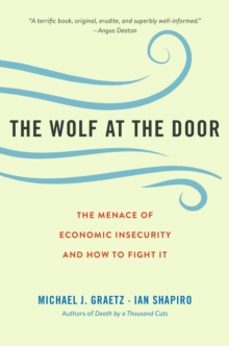Imprescindibles
Más vendidos Libros más leídos eBooks más leídos Todos los libros Todos los libros Autores destacados Series y sagas
Recomendados Libros recomendados Autores destacados Libros que inspiran Vidas con historia LGTBIQ+ English books
Ficción
Literatura Contemporánea Estudios literarios Clásicos Cuentos Poesía Teatro Libros de bolsillo Sagas literarias
Géneros literarios Novela romántica y erótica Novela negra Novela histórica Narrativa fantástica Novela de ciencia ficción Novela de terror Narrativa de humor Narrativa de viajes
No Ficción
Ciencias y tecnología Biología Ciencias Ciencias naturales Divulgación científica Informática Ingeniería Matemáticas Medicina Salud y dietas Formación Idiomas Estilo de vida Libros de Cocina Guías de viaje Narrativa de viajes Deportes Libros de Juegos Manualidades
Humanidades Autoayuda y espiritualidad Ciencias humanas Derecho Economía y Empresa Psicología y Pedagogía Filosofía Sociología Filología Biblioteconomía Estudios filológicos Estudios lingüísticos Estudios literarios Historia y crítica de la Literatura
Infantil
Juvenil
#Jóvenes lectores Narrativa juvenil Clásicos adaptados Libros Wattpad Libros Booktok Libros de influencers Libros de Youtubers Libros Spicy Juveniles Libros LGTBIQ+ Temas sociales Libros ciencia ficción Libros de acción y aventura Cómic y Manga Juvenil Cómic Juvenil Manga Shonen Manga Shojo Autores destacados Jennifer L. Armentrout Eloy Moreno Nerea Llanes Hannah Nicole Maehrer
Libros de fantasía Cozy Fantasy Dark academia Hadas y Fae Romantasy Royal Fantasy Urban Fantasy Vampiros y hombres lobo Otros Misterio y terror Cozy mistery Policiaca Spooky Terror Thriller y suspense Otros
Libros románticos y de amor Dark Romance Clean Romance Cowboy Romance Mafia y amor Romance dramatico Romcom Sport Romance Otros Clichés Enemies to Lovers Friends to Lovers Hermanastros Slow Burn Fake Dating Triángulo amoroso
Cómic y Manga
Novela gráfica Novela gráfica americana Novela gráfica europea Novela gráfica de otros países Personajes, series y sagas Series y sagas Star Wars Superhéroes Cómics DC Cómics Marvel Cómics otros superhéroes Cómics Valiant
Cómics Libros de ilustración Cómic de humor Cómic erótico Historia y técnica del cómic Cómic infantil y juvenil Cómic infantil Cómic juvenil
Top más leídos
Audiolibros
eBooks
Literatura Contemporánea Narrativa fantástica Novela de ciencia ficción Novela de terror Novela histórica Novela negra Novela romántica y erótica Juvenil Más de 13 años Más de 15 años Infantil eBooks infantiles
Humanidades Autoayuda y espiritualidad Ciencias humanas Economía y Empresa Psicología y Pedagogía Filosofía Historia Historia de España Historia Universal Arte Cine Música Historia del arte
Ciencia y tecnología Ciencias naturales Divulgación científica Medicina Salud y dietas Filología Estudios lingüísticos Estudios literarios Historia y crítica de la Literatura Estilo de vida Cocina Guías de viaje Ocio y deportes
IAN SHAPIRO
Recibe novedades de IAN SHAPIRO directamente en tu email
Filtros
Del 1 al 4 de 4
CAMBRIDGE UNIVERSITY PRESS 9780521722391
There might appear to be little that binds the study of order and the study of violence and conflict. Bloodshed in its multiple forms is often seen as something separate from and unrelated to the domains of ''normal'' politics that constitute what we think of as order. But violence is used to create order, to maintain it, and to uphold it in the face of challenges. This 2008 volume demonstrates the myriad ways in which order and violence are inextricably intertwined. The chapters embrace such varied disciplines as political science, economics, history, sociology, philosophy, and law; employ different methodologies, from game theory to statistical modeling to in-depth historical narrative to anthropological ethnography; and focus on different units of analysis and levels of aggregation, from the state to the individual to the world system. All are essential reading for anyone who seeks to understand current trends in global conflict.
Ver más
Tapa blanda
HARVARD UNIVERSITY PRESS 9780674260429
Deep informed and reeks of common sense Norman Ornstein It is now beyond debate that rising inequality is not only leaving millions of Americans living on a sharp edge but also is threatening our democracy For activists and scholars alike who are struggling to create a more equitable society this is an essential read David GergenWe are in an age of crisis That much we can agree on But a crisis of what exactly And how do we get out of it In a follow up to their influential and much debated Death by a Thousand Cuts Michael Graetz and Ian Shapiro focus on what really worries people not what the rich are making or the government is taking from them but their own insecurity Americans are worried about losing their jobs their status and the safety of their communities They fear the wolf at the door The solution is not protectionism or class warfare but better jobs higher wages greater protection for families suffering from unemployment better health insurance and higher quality childcare And it turns out those goals are more achievable than you might think The Wolf at the Door is one of those rare books that doesn t just diagnose our problems it shows how to address them This is a terrific book original erudite and superbly well informed and fu
Ver más
Tapa blanda
Bellaterra Edicions 9788472903012
¿Qué debemos esperar de la democracia y qué probabilidades existen de que la democracia satisfaga dichas expectativas? En El estado de la teoría democrática,Ian Shapiro proporciona una valoración crítica de las respuestas contemporaneas a estas cuestiones, despliega su alternativa particular, y examina sus implicaciones en la politica y en la accion politica.Algunos estudios sobre los objetivos de la democracia se centran en preferencias grupales; otros tratan del debate colectivo en busca del bien comun.Shapiro pone de manifiesto las carencias de ambos, contraponiendo la idea de que la democracia deberia orientarse a minimizar la dominacion en todos los ambitos de la sociedad. Sostiene que la clasica defensa que Joseph Schumpeter lleva a cabo de la democracia competitiva constituye un punto de partida util para lograr dicho proposito, pero que necesita un complemento radical tanto con respecto a su puesta en practica en las instituciones politicas nacionales como en su ampliacion a otras formas de asociacion colectiva. La propuesta de Shapiro, inusitadamente amplia, tambien trata de las condiciones que hacen probable, en grado mayor y menor, la pervivencia de la democracia, con los desafios que constituyen las diferencias etnicas y las reivindicaciones por los derechos de grupos, y de las relaciones entre la democracia y la distribucion de la renta y la riqueza.
Ver más
Tapa blanda
Del 1 al 4 de 4





























